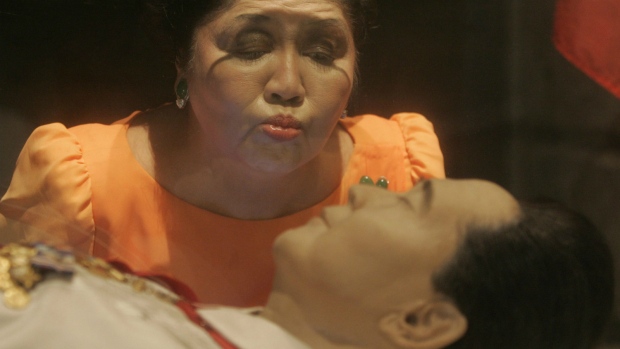-
Tips for becoming a good boxer - November 6, 2020
-
7 expert tips for making your hens night a memorable one - November 6, 2020
-
5 reasons to host your Christmas party on a cruise boat - November 6, 2020
-
What to do when you’re charged with a crime - November 6, 2020
-
Should you get one or multiple dogs? Here’s all you need to know - November 3, 2020
-
A Guide: How to Build Your Very Own Magic Mirror - February 14, 2019
-
Our Top Inspirational Baseball Stars - November 24, 2018
-
Five Tech Tools That Will Help You Turn Your Blog into a Business - November 24, 2018
-
How to Indulge on Vacation without Expanding Your Waist - November 9, 2018
-
5 Strategies for Businesses to Appeal to Today’s Increasingly Mobile-Crazed Customers - November 9, 2018
Philippine gov’t defends decision on hero burial for Marcos
“The status quo ante brings us back to the prevailing situation before the certain event”.
Advertisement
The status quo order, which was supposed to lapse on September 12, was postponed until October 18.
The order was directed to Rear Admiral Ernesto Enriquez in his capacity as the Deputy Chief of Staff for Reservist and Retiree Affairs, Armed Forces of the Philippines, the Grave Services Unit (Philippine Army) and AFP Chief of Staff, General Ricardo Visaya, Defense Secretary Delfin Lorenzana, and heirs of Marcos represented by his surviving spouse Imelda Romualdez Marcos.
The Supreme Court is hearing the petitions of six complainants in an ongoing trial that kicked off on Wednesday against the scheduled burial for Marcos in the Heroes’ Cemetery on September 18.
Almost 200 people have protested burying a former Philippines president in a Heroes Cemetery.
He said the controversy is the “beyond ambit of judicial review” and warned that granting the petitions would be tantamount to an “intrusion upon executive power”.
“The former Presidents have exercised the same powers as President Duterte when they decided on the freight of Marcos’ remains during their respective term”.
Calida said that the cemetery is not a national pantheon, and that its name is a misnomer because there is no standard or body defining what a hero is, and burying Marcos there will not confer him the title of a hero. He said Marcos as a former president and war veteran who was not dishonorably discharged from the military is qualified to be buried at the military-run cemetery. “But to accord him the simple mortuary rights befitting a former president, commander in chief, war veteran and soldier”, Calida told the magistrates.
Calida said President Rodrigo Duterte desires to begin the “long overdue healing” of the nation – and part of that healing, Calida said, is burying the former President at the LNMB.
He was ousted in a 1986 “people power” revolt and died in exile in Hawaii in 1989. She also said public funds can not be used to fulfill a political promise.
The head of the National Historical Commission of the Philippines also testified on a study by the commission that shows Marcos’ military record from World War II is fraught with myths and lies, including about receiving US medals. In fact, I was surprised that the human rights victims who were present here last Wednesday were allowed to narrate their frightful experiences during the martial law regime.
Calida disputed this, saying burying Marcos at the LNMB will not rekindle the pain suffered by martial law victims.
Advertisement
Calida said those tags were used on Marcos as a president and not as a military officer.





























